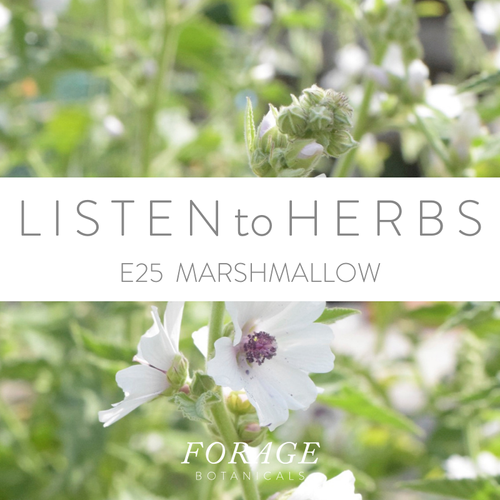by Natasha Richardson
Is PMS an Illness?

"PMS is a chronic condition experienced by menstruating women which is characterised by distressing physical, behavioural and psychological symptoms that regularly recur during the luteal phase of the menstrual cycle ( from ovulation to the onset of a period) and that disappear or significantly diminish by the end of the period (menstruation)" - National Association for Premenstrual Syndrome
"Definitions tend to be correspondingly general and vague. In current clinical terminology, "PMS" refers to any unspecified periodical somatic, psychological or behavioural disorder which begins in the days before menstrual bleeding and may or may not end with its onset". - Michael Stolberg, 2004
Notice the words "chronic condition" in the definition. Although I could be in a condition of happiness, when it’s used in medicine a chronic condition is never good. These words demonstrate the underlying pathologising of PMS. But we don't need to see a set of symptoms as a disease or illness to recognise its existence.
Symptoms
"Most women have tender breasts, bloating, and muscle aches a few days before they start their menstrual periods. These are normal premenstrual symptoms. But when they disrupt your daily life, they are called premenstrual syndrome (PMS). PMS can affect your body, your mood, and how you act in the days leading up to your menstrual period". - webmd
Imagine a world where women were the first academics and they decided that the psychological, emotional and physical symptoms men experienced after a heavy meal including; fatigue, poor concentration, stomach pains and belching should be called a syndrome? What if we started calling it post-heavy-meal-syndrome, or PHMS for short? What if we started to look for a cause of PHMS or just told men "it's all in your head"? What if we, decided you need stimulants to deal with the terrible energy depleting effects of PHMS? This is what male academics of years gone by did with PMS. There are over 100 symptoms which fall into the PMS category, so many that even people without periods could be told they have PMS.
History
PMS started to be used in the 1930’s. In a time where women’s bodies were highly scrutinsed as oddities, premenstrual syndrome came to be the modern way of defining one of many maladies associated with periods. Following a long history of women’s periods being blamed for all sorts. Even now some cultures believe that a bleeding woman will affect the growth of crops or somehow poison the food they cook. Syndromes are a way that medicine categories symptoms that always seem to occur together but for which there is still little understanding of why it happens. So many display these symptoms that one has to wonder, is this actually more normal than abnormal?
Epidemiology
"We believe that premenstrual symptoms are experienced to a lesser or greater extent by most women and that these symptoms are real rather than imaginary. We do not think, however, that PMS is, as some have argued, either a disease or a neurosis. It is so widespread a phenomenon, in fact, that the absence of the most common symptoms during the premenstruum would be unusual." - The Curse by Janice Delaney, Mari Jane Lupton and Emily Tooth
Although we don't need to see PMS as an illness to recognise its existence, we do if we want to create drugs for it. At the moment the most commonly used medications for PMS are SSRI's (a type of anti-depressant), hormonal contraceptives to alter natural hormone levels and NSAID's (non-steroidal anti-inflammatories) for pain. Although it's great to have these as options there are other treatments available that are not offered in the doctors consulting rooms that are safer, less addictive and don't have the same side effects. For example; herbs, acupuncture, massage, dietary changes, relaxation techniques, I could go on.
It seems we know PMS isn't a medical disease. But yet, we behave like it is. We seek out treatment for it, we even take drugs for it. As early as the 4th century BC, men (who were the only academics in that time) have struggled to understand this "monthly malady", as it's sometimes called.
A Self-Fulfilling Prophecy
Treating PMS as though it is an illness, and speaking in negative terms about it, is incredibly damaging to our experience both physically and mentally during this time. It increases the likelihood that we will be looking for the negative effects and struggle to see the positive. It also increases our experience of pain, as we expect pain.
I found in my practice that it’s very rare someone needs herbs that alter hormones to manage their PMS. Instead my patients always responded well to emotional, nutritional and stress-management support. I don't try to cure myself of PMS but rather live with it in a harmonious way. I have found that through charting and natural, healthy living, I can enjoy this time of my cycle. It can be a quiet, peaceful and creative time. A time where I have the best intuitive ideas shoot forwards to the front of my mind. The sort of crazy ideas that my ego normally wouldn't allow through for fear or doubt in myself. This is a time of natural Hygge and self-care I especially like to take a hot bath with hormone balancing essential oils. This is a time that needs to be taken back.
What About PMDD?
PMDD (or Premenstrual Dysphoric Disorder) has a much more restricted definition and is therefore much more useful than PMS as a system. What we need to avoid with PMDD is thinking that it’s the hormones which are creating the mental distress. I have yet to meet a person with PMDD who didn’t have a history of intense stress and trauma over long-swathes of their life. Rather than dishing out the contraceptive pill to stop their periods, lets focus our attentions on listening to these people. Offering them some sort of talking therapy whilst supporting their moods with good foods for the microbiome, relaxing herbs and (if they need it) antidepressants. If you’re struggling with PMDD dont’ suffer in silence, have a chat with one of our in-house herbalists.
What can I do?
First, it starts with re-branding PMS in your mind. Take it away from being a syndrome. Turn it into the premenstrual phase. Just a phase. One that we all move through. It’s a great time to reflect critically over elements of your life that aren’t bringing you fulfilment. Take herbs that bring relaxation every day so that when you pass through this phase, you aren’t over-tired and wrung out. I created the Premenstrual Peace drops specifically for this. Mark out the week before each period in your diary so you can carve out some serious me-time and do whatever it is you enjoy most. For me, it’s always baths. Check out our amazing bath salts if you’re like me.
References
Delaney, J., Lupton, M.J. and Toth, E. (1976) The curse: A cultural history of menstruation. New York: Dutton.
A visual guide to premenstrual syndrome (PMS) (2023) WebMD. WebMD. Available at: https://www.webmd.com/women/pms/ss/slideshow-premenstrual-syndrome-pms#:~:text=A%20week%20or%20two%20before,as%20premenstrual%20syndrome%2C%20or%20PMS. (Accessed: January 11, 2023).
Stolberg M. (2000) The Monthly Malady: A History of Monthly Suffering. Medical History. 44 : 301-322.
About PMS (2023) NAPS – National Association for Premenstrual Syndromes. Available at: https://www.pms.org.uk/about-pms/ (Accessed: January 11, 2023).




